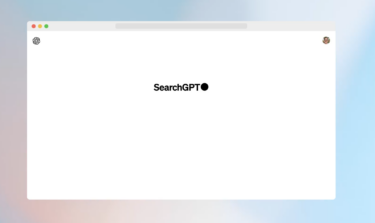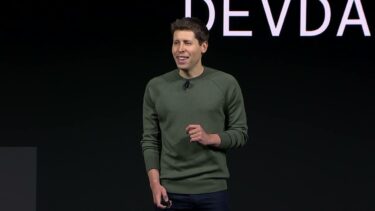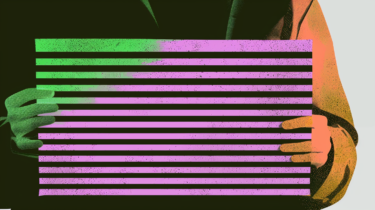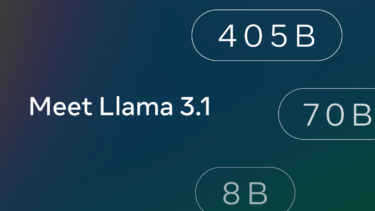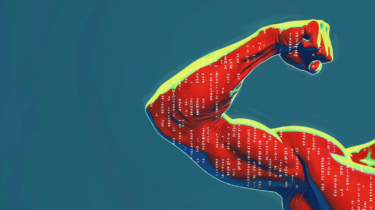Instead of banning AI in the classroom, the Ministry for Schools and Education of the German state of North Rhine-Westphalia (NRW) offers tips for teachers on how to use ChatGPT and the like in the classroom.
After the release of ChatGPT (or even earlier with GPT-3), one group in particular jumped on the AI bandwagon: students. After all, the chatbot could practically take over the tedious task of writing homework.
Since then, the debate has turned to the detection of AI-generated text. Numerous companies, including OpenAI itself, are positioning themselves on the market with AI text recognition tools, although in some cases the exact methodology and false positive rates are not yet transparent. This makes their use questionable, especially in education.
A reliable technical solution for distinguishing between AI-generated and human text does not yet exist and, according to OpenAI CEO Sam Altman, never will.
AI in the classroom is here to stay
The Ministry for Schools and Education of North Rhine-Westphalia has now published a guide for teachers on how to use AI in the classroom. The speed with which it was published is remarkable, as is the open-mindedness with which it embraces the technology.
In general, the ministry advises a constructive approach to the new possibilities of AI. The impact of the systems on education and careers is currently "difficult to assess" and, according to experts, "immense," the ministry writes.
Against the backdrop of a very dynamic and evolving world in which students live, banning AI in the classroom and its didactic use cannot be a viable response. It is therefore important that teaching and schools continue to open up and reflect on developments together with students.
From the guide
The availability of AI text generators could have a positive impact on classroom content eventually. The ministry recommends individualizing assignments or changing the medium or format so that students are not tempted to (excessively) use AI tools.
For example, ChatGPT cannot conduct its own surveys or design a poster, but it can generate ideas for outlining an essay or help with wording. Finally, the guide encourages more and more personalized feedback, so students may end up writing fewer but higher quality essays.
Teachers could also find productive uses for text AI, such as in lesson preparation. They could use the tools to prepare texts at different skill levels or to create quiz formats. Grammar, spelling, and sentence structure could also be pre-corrected. For privacy reasons, the ministry does not recommend entering student data.
As a pragmatic introduction to AI teaching, the ministry recommends writing prompts together or checking chatbot-generated texts and formulas for mistakes. These mistakes could serve as a starting point for discussions about the systems' capabilities and appropriate uses.
Using AI requires transparency - and a new generation of schooling
Where AI has contributed to the creation of a piece of text (or program code, or an image), the ministry believes that there should be clear and consistent rules about how this should be credited. In addition to the AI tool used, the prompts used by students should also be credited.
In the production of this text [or image or programming code etc.] X [=name of the AI-assisted tool] was used. I used the following prompts [= instructions or questions to the AI] to control the AI: 1. ____, 2. ____.
Suggested Citation for AI Generators
Omitting these details is an attempt to cheat and should be punished accordingly, the ministry said.
Teachers could also design assignments in such a way that AI cannot solve them on its own. For this "evolution of assignments" in the age of AI, the ministry offers three guidelines.
- If individual references are included in the learning and performance tasks, the AI cannot easily take them into account, so the learner's own contribution is necessary.For example, if a class survey, experiment, mapping, personal data collection, personal hobby, self-selected focus related to home, or comparison with a classmate's report is included, the AI text generators cannot fully handle the task.In addition, it can help motivate learners if a topic can be approached from an individual, self-selected perspective.
- Changing the format or media of the task results in learners having to implement their findings independently: for example, while the AI can provide ideas for creating a poster, an explanatory video, a podcast, a song, or a still image, the appropriate implementation, and thus engagement with the content, must be done by the learners.In addition, this can also be used to promote argumentative skills in learners by increasingly asking them to justify their own decisions, analyses, or formats.
- Formative assessment - i.e. observation, feedback that accompanies the development process - also helps to ensure the independence of the work done. In addition, it promotes the motivation and acceptance of learners to write their own texts if they can be continuously improved on the basis of repeated, individualized and timely feedback.Instead of writing several new texts for the lesson, fewer but better texts are produced that have been revised several times - the teacher can limit the feedback to essential aspects. Similarly, the continuous feedback loop between teacher and student means that the insertion of longer text segments from an AI becomes less likely.
From the guide
The bottom line shows a determination to see artificial intelligence as an integral part of the classroom in the future. A ban is "far from reality and untenable," the ministry writes. Instead, the potentials and risks for teaching and learning must be worked out. The handling of AI must be negotiated and legally secured.
"There is broad agreement that a competent handling of AI applications is indispensable for successfully coping with future challenging situations in education, studies, work and everyday life; for this reason, too, schools must not hermetically seal themselves off," the ministry writes. Parents, school supervisors, and teacher education and training must be involved in this development.
With this directive, NRW is following in the footsteps of Bavaria, which has already announced a pilot project called "KI@School" for November 2022. But the concrete proposals from the North Rhine-Westphalian authorities are likely to change the way more classrooms are taught.


